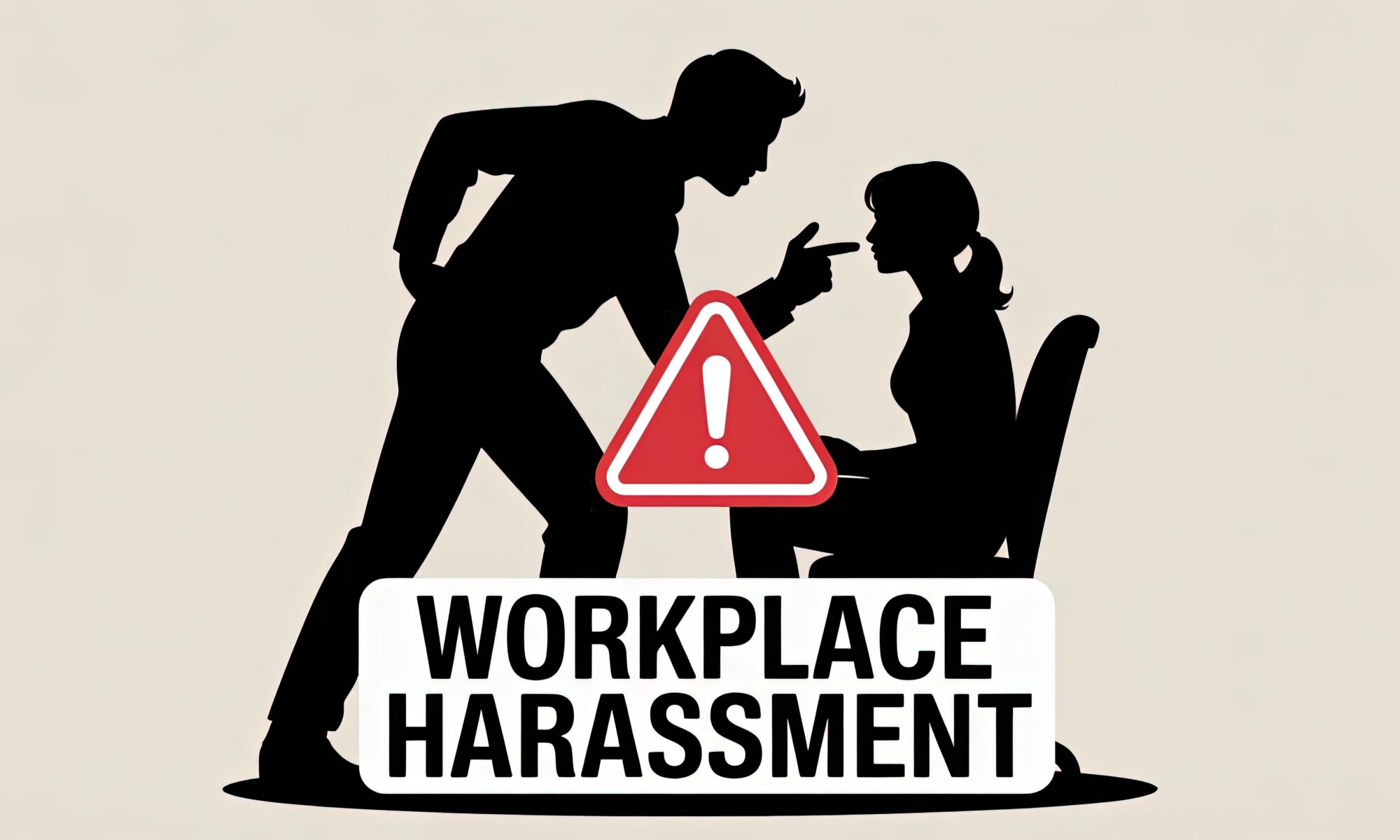Hostile Work Environment Laws: What You Need to Know
A workplace should be a space for professional growth and collaboration, not a source of fear and discomfort. Yet, for many employees, the daily reality is far from this ideal. When unwelcome conduct based on protected characteristics like race, sex, or religion becomes so severe that it creates an intimidating or abusive atmosphere, it crosses a legal line, becoming a hostile work environment. Such an environment not only corrodes morale and productivity but also has significant legal implications for employers who fail to prevent it.
Understanding the legal framework that defines and governs a hostile work environment is the first step toward safeguarding employee rights and ensuring corporate accountability. This guide will walk you through the essential laws, what constitutes illegal harassment, and the steps both employees and employers can take to address and prevent it.
The Legal Framework Defining Workplace Hostility
Both federal and state laws establish the legal basis for what constitutes a hostile work environment. These statutes are designed to protect employees from discrimination and harassment based on specific, protected characteristics.
Federal Law: Title VII of the Civil Rights Act
At the federal level, the primary law is Title VII of the Civil Rights Act of 1964. This landmark legislation prohibits employment discrimination based on race, color, religion, gender, and national origin. It applies to employers with 15 or more employees. Over the years, its protections have been expanded through court rulings and other laws, such as the Americans with Disabilities Act (ADA) and the Age Discrimination in Employment Act (ADEA), to include disability and age (40 and over).
State Law: California’s Fair Employment and Housing Act (FEHA)
Many states have their own anti-discrimination laws that often provide broader protections than federal law. In California, the Fair Employment and Housing Act (FEHA) is a powerful tool for employees. FEHA prohibits harassment based on a wide range of protected categories and applies to all employers, regardless of size. Crucially, FEHA mandates that employers “take reasonable steps to prevent and correct wrongful (harassing, discriminatory, retaliatory) behavior in the workplace.”
The EEOC’s Definition of Harassment
The U.S. Equal Employment Opportunity Commission (EEOC) is the federal agency responsible for enforcing anti-discrimination laws. The EEOC defines harassment as unwelcome conduct that is based on a protected characteristic. This conduct becomes unlawful where:
- Enduring the offensive conduct becomes a condition of continued employment, or
- The conduct is severe or pervasive enough to create a work environment that a reasonable person would consider intimidating, hostile, or abusive.
This “severe or pervasive” standard is critical. It means that a single, minor incident or an offhand comment is typically not enough to be illegal. Instead, the behavior must be persistent or so egregious that it fundamentally alters the employee’s work environment.
What Constitutes a Hostile Work Environment?
Not all unpleasant workplace behavior is illegal. For conduct to be considered legally hostile, it must be both unwelcome and pervasive or severe. The behavior must be subjectively abusive to the person affected and objectively hostile to a reasonable person in the same situation.
Examples of prohibited behaviors that can contribute to a hostile work environment include:
- Verbal Conduct: This includes telling racist or sexist jokes, using derogatory slurs or epithets, making degrading comments about an individual’s body, or issuing verbal threats. It also covers verbal abuse, mockery, and unwelcome sexual advances.
- Physical Conduct: Unwelcome touching, physical assault, and impeding or blocking an employee’s movement are clear examples of prohibited physical conduct.
- Visual Displays: Displaying sexually suggestive or racially insensitive objects, pictures, cartoons, or posters can create a hostile environment. This includes imagery with a sordid history, such as swastikas or nooses.
Courts consider several factors when determining if conduct is severe or pervasive, including the frequency and severity of the conduct, whether it was physically threatening or humiliating, and whether it unreasonably interfered with an employee’s work performance.
Common Types of Workplace Harassment
Harassment that creates a hostile work environment can manifest in several forms, often tied to a specific protected category.
- Sexual Harassment: This includes unwanted sexual advances, requests for sexual favors, and other verbal or physical conduct of a sexual nature. It can take the form of quid pro quo harassment, where an employment decision is based on an employee’s submission to or rejection of sexual advances, or it can create an offensive environment through pervasive, unwelcome sexual comments or actions.
- Racial Harassment: This involves discriminatory conduct based on a person’s race or ethnicity. It can range from racial slurs and offensive remarks to displaying symbols associated with racial hatred.
- Religious Harassment: Treating an employee unfavorably because of their religious beliefs, or making offensive remarks about their religion, constitutes religious harassment. This also includes an employer’s failure to provide reasonable accommodations for an employee’s religious practices.
- Other Protected Categories: Harassment based on age, disability, national origin, sexual orientation, or gender identity is also prohibited and can form the basis of a hostile work environment claim.
Employer Responsibilities to Prevent Harassment
Under laws like the Fair Employment and Housing Act (FEHA), employers have an affirmative duty to prevent harassment. This requires proactive measures, not just reactive responses. An effective anti-harassment program includes:
- A Clear, Written Policy: Employers must have a comprehensive anti-harassment policy that is easy to understand and regularly distributed to all employees.
- Mandatory Training: California law requires employers to provide regular harassment prevention training for all employees, with specialized training for supervisors.
- A Fair Complaint Process: There must be a clear and accessible procedure for reporting harassment.
- Prompt and Thorough Investigations: When a complaint is made, employers must conduct a prompt, impartial, and thorough investigation. This helps stop the behavior and sends a message that the company takes harassment seriously.
- Appropriate Remedial Action: If an investigation confirms misconduct, the employer must take prompt remedial action that is designed to stop the behavior and prevent its recurrence.
Employee Rights and Legal Recourse
If you are experiencing harassment at work, creating a hostile work environment, you have rights and several options.
- Report the Harassment: The first step is often to report the conduct internally to your supervisor, a designated HR representative, or anyone in your supervisory chain. Your employer cannot fix a problem it doesn’t know about.
- Document Everything: Keep a detailed record of every incident of harassment. Note the date, time, location, what was said or done, and who was present. Save any emails, texts, or other physical evidence.
- Legal Recourse: If your employer fails to take action, you can file a complaint with a government agency like the DFEH in California or the federal EEOC. You also have the right to file a lawsuit against your employer. Remedies for a successful claim can include reinstatement to your job, back pay, and damages for emotional distress.
It is illegal for an employer to retaliate against an employee for reporting harassment or participating in an investigation.
The Damaging Impact of a Hostile Workplace
The consequences of a hostile work environment are severe for both employees and employers. For employees, the emotional and psychological toll can be devastating, leading to anxiety, depression, and other stress-related health issues. For employers, the costs can be immense, including legal fees, settlement payouts, decreased productivity, and damage to the company’s reputation.
Take Action to Protect Your Rights
No one should have to endure a hostile work environment. Understanding your rights is the first step toward holding employers accountable and ensuring workplaces are safe and respectful for everyone. If you believe you are a victim of workplace harassment, it is crucial to seek professional legal guidance.
The attorneys at Helmer Friedman LLP are dedicated to fighting for the rights of employees who have been subjected to discrimination and harassment. We offer confidential consultations to help you understand your options and take the next step. Contact Helmer Friedman LLP today to speak with an experienced employment lawyer.









